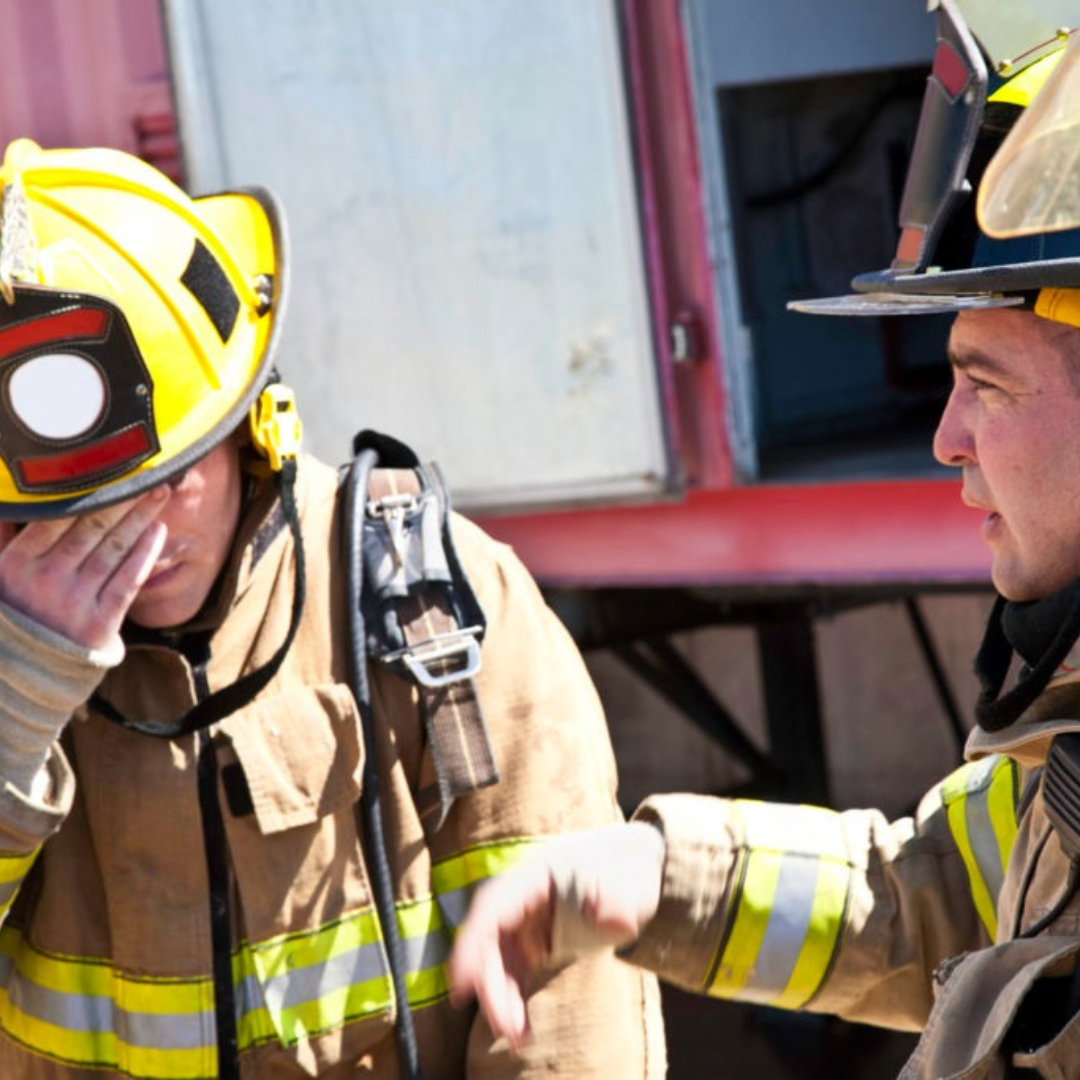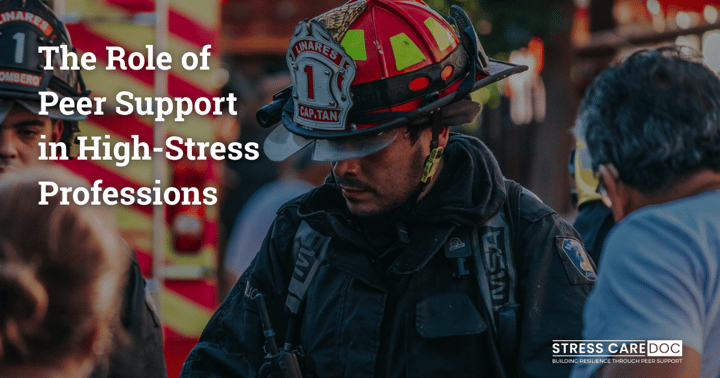Finding Peer Support and Building Resilience as a First Responder

If you're a first responder or other frontline professional feeling misunderstood and overwhelmed, you’re not alone. Today, we delve into the importance of peer support and how it can help lighten your load, provide meaningful connections, and help you support your peers.
The Importance of Peer Support
First responders and frontline professionals face unique challenges. Constant exposure to high-stress situations and traumatic events can take a significant toll on mental health. Finding someone who truly understands these experiences is crucial.
Cherie Castellano, a national expert in the field of peer support, sheds light on this issue. She created the Reciprocal Peer Support Model, recognized as a national best practice by the American Psychiatric Association and the Department of Defense Center for Excellence. Cherie founded Volunpeer, a nonprofit organization designed to grow peer support for first responders and survivors of disaster, trauma, and mental illness.
Understanding Peer Support
Peer support involves talking to someone who has been through similar experiences. This connection can provide relief and a sense of understanding that is often missing when speaking with those who haven't shared these challenges. It’s about having a real, no-nonsense chat to clear your head.
Cherie explains that peer support starts with self-disclosure. A peer supporter says, "I am someone who has been where you are, and I'm here with you now." This shared experience fosters a deep connection, providing validation and normalization for the individual seeking support.
Benefits of Peer Support
- Shared Experiences: Peer supporters understand the unique challenges faced by first responders because they have lived through them.
- Validation and Normalization: Talking to someone who truly gets it can make you feel less isolated and more understood.
- Supplementing Professional Help: Peer support can complement traditional therapy, providing additional emotional support.
- Personal Growth: Supporting others can also help the peer supporter, fostering a sense of purpose and fulfillment.
Real-Life Impact
Cherie shares a powerful story about her involvement with a program called Mom2Mom, created for mothers of children with developmental disabilities. Through this program, she connected with a mother in Newark facing significant adversity. Despite her own struggles, this mother felt called to be her daughter’s caregiver, providing her with everything she needed despite numerous obstacles. This experience inspired Cherie and reinforced the importance of reciprocal peer support.
Becoming a Peer Supporter
For those interested in becoming trained peer supporters, it’s important to find a group that aligns with your experiences. For first responders, organizations like the International Critical Incident Stress Foundation (ICISF) offer excellent training programs. These programs ensure that peer supporters are professionally trained and supervised by licensed mental health clinicians.
Cherie emphasizes the importance of proper training to avoid causing harm. Certification standards for peer support, like those from SAMHSA (Substance Abuse and Mental Health Services Administration), provide a structured curriculum to ensure peer supporters are well-prepared to help others.
The Future of Peer Support
Cherie’s organization, Volunpeer, focuses on providing peer support to underserved groups, including survivors of disasters, family members of first responders, and the LGBTQ+ community. She believes that peer support is essential, especially given the shortage of mental health providers. Volunpeer aims to fill this gap by training peers to provide support while individuals wait for professional help.
Cherie’s personal experience with disaster recovery has also shaped her approach to peer support. Two years ago, her family lost their home in a fire. The support they received from the community inspired them to give back, leading to the creation of Volunteer.
Overcoming Life’s Challenges Together
Cherie believes that overcoming suffering is what truly inspires people. She quotes Helen Keller, saying, "Although the world is full of suffering, it is always full of the overcoming of it too." This idea of lifting each other up and building a new, stronger version of ourselves is at the heart of peer support.
Cherie emphasizes the contagious nature of compassion and the importance of supporting one another through life’s adversities. She encourages anyone interested in peer support to learn more about it and get involved, whether through organizations like Volunteer or other advocacy groups.
Self-Care for Peer Supporters
Taking care of yourself is just as important as supporting others. Cherie shares that she finds comfort in prayer and meditation, which helps her stay grounded and resilient. Finding what works for you—whether it’s a hobby, exercise, or spending time with loved ones—can make a big difference in maintaining your own well-being.
Conclusion
Peer support is a vital resource for first responders and frontline professionals. It provides a unique and powerful way to connect with others who truly understand your experiences, offering both emotional support and personal growth. By becoming involved in peer support, you can help yourself and others navigate the challenges of high-stress careers and build a stronger, more resilient community.
Listen to her interview here.
For more information about Cherie Castellano’s work and how to get involved with Volunpeer, visit Volunpeer Peer Support Programs. And remember, let’s strive to thrive, not just survive.





